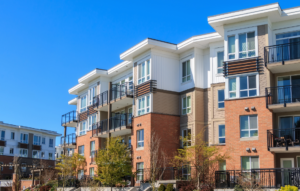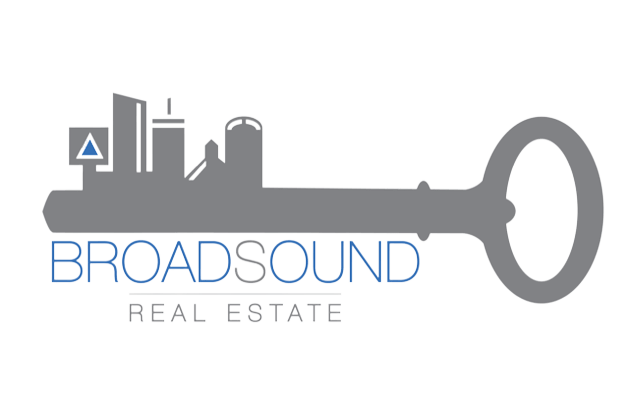There are many things to know before buying a house.
When wondering about all of those things to know before buying a house, you may ask yourself, “Am I ready to buy a house?”
This brings us to the actual topic, 7 things to know before buying a house; let’s get started:
Things to know before buying a house [Can’t miss these!]:
When considering things to look for when buying a house, one can become overwhelmed with how vast an undertaking this particular task can be.
One might feel daunted by all options: location, style, price, and resale value (to name the obvious ones – there is so much more).
However, we’re here to tell you that you’re not alone in that feeling!
Are you wondering if you should rent or buy? What is your budget for a home? What does it take to get into your dream home?
Therefore, this article will explain to you some things to know before buying a house and provide you with a step-by-step process to put your mind at ease (and hopefully help you make smart decisions)! Here’s what your checklist for buying a home looks like:
1. Your house’s location
When looking for a house to buy, it’s important to consider where the property is located.
Location is vital because it can determine what kind of neighborhood you live in and how accessible the area is in things like shopping, schools, and even your place of employment.
Also, you want to be living in an area that’s close by things you need or want, just as far away from those things/places you don’t like as possible, which makes it one most important things to look for when buying a house!
2. Your financial health
You want to keep your expenses in check, including rent.
You should not spend more than 28% of your monthly income on housing-related payments, including rent, home insurance, and homeowner’s association (HOA) fees.
Work with a real estate agent to determine how much you can afford to pay for the house.
Also, you will need to consider other significant debts such as car payments, credit card payments, and student loan repayments.
Be aware that these are all regarded as additional debt; once combined with your mortgage payment, they should not exceed 36% of your gross monthly income.
The lower this amount is, the better chance you can stay on top of things like medical emergencies or meeting other essential expenditures while planning financially to buy a new house!
2.1. Your credit score
This number is a load-bearing wall in your house. Thus, the more you know about it, the better off you will be when making changes to improve it.
As the foundation of thousands of financial decisions, determining if your credit score is good enough to get a mortgage can be tricky.
It’s key to understand where you stand on payment history and amounts owed on credit cards, loans, and other accounts.
Learning how they impact your credit score allows you to understand better how lenders see your current and past financial situations.
This affects whether or not they think you’re worth as far as doing business is concerned.
Since higher scores – ranging from 500 to 850 – are usually associated with lower interest rates, checking out your credit score can give you an idea of whether or not it makes sense to work on improving it before applying for a mortgage.
2.2. Your mortgage eligibility
On the path to homeownership, it’s essential that you first conduct your due diligence and ensure that you’re ready before putting in an offer on a home.
In matters of real estate, sellers often require buyers to be pre-approved for a loan before completing an offer.
These days, many are hesitant to go ahead with deals unless they’re certain their financing is lined up.
To apply for a mortgage loan and complete all necessary paperwork, take time to research lenders and shop around so that you can compare interest rates and fees.
As mentioned above, tools like our mortgage calculator or Google searches can help here.
Yes, Google knows everything, but we also know a huge portion, as long as it’s in the real estate world.
We can help you with this!
2.3. Your down payment options
Some lenders might require a down payment to show that you’re committed enough to be able to secure their loans.
There are options regarding the amount of money required for this initial investment.
Many states and counties or cities offer programs that offer equity-based mortgages with low-interest rates and matching funds or grant assistance meant to cover extra costs involved, such as closing costs.
Doing research will give you plenty of information about what kind of property you’d like and a rough estimate regarding how much cash is necessary for an upfront deposit when submitting your digitized deed for ownership of your new property.
3. Your desired home type
When it comes to purchasing a home, you have many options.
A single-family home, duplex, or townhouse can be an excellent option for those looking to purchase to live in the space as their permanent residence.
Consider a condo or co-operative if you plan to rent out the unit and are interested in building or adding value to your property.
Alternatively, there could be some fantastic opportunities with multiple apartments within a building, but you need to decide whether that’s what you want based on your long-term goals.
For sure, you’ll save money no matter which way you go!
But factor in time and money as well – sometimes buying a fixer-upper can cost more than expected, so make sure what it is that you want out of homeownership before committing to a new neighborhood and lifestyle.
4. Your Local Market indicators
One of the hardest things to factor in when buying a home is something you have no control over – the local market.
This could be why you want to purchase in an area without a lot of inventory or perhaps not quite at your budget level.
On top of that, some markets don’t supply homes for sale because buyers aren’t active there, so they can’t sustain this new level of competition (which is okay and even average).
In some markets, it has become more economical to own than rent, but there are others where it is wiser to rent.
Obviously, this is dependent on where your target market is at the moment. Thus, although interest rates are important, owning in a favorable market is equally crucial.
5. Your ideal home amenities
Amenities inside and around your home are necessary too. They can make or break your experience while you’re living there.
Think of what sort of flooring and quality kitchen appliances might be features that are necessary for your ideal home.
How about another example? What if you loved what it might be like to have a finished basement in your dream house but would rather save the money on that feature than other things like wood flooring as an upgrade to carpet?
Or perhaps a backyard feature like a garden, fire pit, or playset would be fun to have?
Try focusing on expensive upgrades you might want versus amenities that could remain easily replaced after purchase.
[Related Article: How Much Money Do You Need to Buy a House?]
6. The seller’s incentive
Before you search the multitude of houses for sale in your area, you need to consider how sellers present their homes.
It’s common for some sellers to have the motivation to sell but are less interested in finding a quick buyer. Also, these homeowners may simply not be looking for a quick sale or remaining where they are because of sentimental reasons or because their housing needs are being met just fine.
There may not be much room to negotiate on price with these owners compared to other homeowners.
However, some sellers will have extreme motivations like an estate sale, job relocation, and mortgage payoff that may prompt real estate negotiability.
Your agent can recommend methods of negotiation specific to each seller scenario, plus help you find a home that works perfectly within your price range!
7. Your agent’s credibility
Real estate agents are known for taking a percentage of the sale price. That’s right!
A seller pays a commission to a realtor. Thus, some buyers hesitate to use one because they believe it drives up the overall cost.
But you need to understand that when you hire a realtor, they represent your interests, which means they will work harder than any other agent to get you the best deal when it comes time to put in an offer on purchasing a new home.
Using an agent who knows what he/she is doing protects your interests well throughout the buying process.
It goes from negotiating with sellers about pricing and closing costs to knowing what sort of inspections you should request before making an offer and even understanding how imperative it is for you as a buyer to be flexible when moving into your new house. And remember, real estate agents are experts on the market in their local area, so it’s not wise for you to ignore their advice!
In conclusion,
Buying a home is a significant financial decision and one that can take a lot of time and effort.
But by following this checklist for buying a house, you’ll feel more in control and know exactly what you need to do to make your purchase happen.
Be sure to contact us if you have questions about how to buy a house; we’d love to guide you in this process. Get in touch today, and let’s get you closer to your dream home!















![eBook How to Increase Home Value [7 Simple Ways]](https://realestatejuanc.com/wp-content/uploads/2022/03/FORMAS-WAYS-TO-INCREASE-YOUR-HOME-VALUE.png)
8 thoughts on “7 Things to Know Before Buying a House”
Pingback: Home Office Remodel vs. Upsizing Your Home - Real Estate Juan Cano
Thanks for the auspicious writeup. It if truth be told was
a enjoyment account it. Glance advanced to more introduced agreeable from you!
By the way, how can we be in contact?
Good article. I definitely appreciate this website. Continue the good work!
Hi there, I enjoy reading all of your post.
I wanted to write a little comment to support you.
It’s like you read my mind! You appear to know a lot about this like you wrote the book in it or something. I think that you could do with a few pics to drive the message about housing even better, but other than that, this is a magnificent blog.
A great read. I will definitely be back.
Remarkable issues here. I’m very glad to look at your article.
Thanks a lot.
What’s up, I log on to your blogs on a regular basis.
Your writing style is awesome, keep doing what you’re doing!
Pingback: My Homepage
Comments are closed.